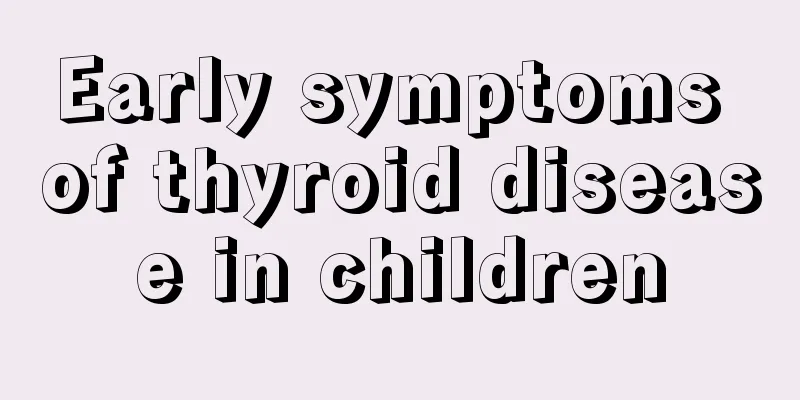Causes of milk allergy in babies

|
Parents of children will find that their babies are allergic to milk. When they give their children milk, the children’s water or even their faces will show allergic symptoms. The first reason is that the children are not used to this kind of milk powder. When encountering this phenomenon in life, many parents are at a loss. What should we do? Caused by not eating the mother's colostrum. Newborns need to eat soon after birth. Some parents use the excuse that the mother is weak after giving birth and needs rest badly, and do not let the child suck the mother's colostrum first. Instead, they feed the child with sugar water or milk instead of breast milk too early, causing the child to lack anti-allergic substances in the body. Modern medical research has found that when a child is born, his body has stored enough nutrients and water, enough to meet his needs before he starts sucking colostrum from his mother. Therefore, it is not necessary to feed him sugar water when he is born. He should suck colostrum as soon as possible because colostrum is not only rich in nutrients, but also contains anti-allergic ingredients, which is very beneficial to the child's health. 2 Caused by improper dilution of milk. If the mother lacks milk or has no milk, she will feed the baby with milk from the beginning. When diluting milk, because the prescribed method and proportion are not followed, children often become allergic to milk after consuming it. Modern immunological research has found that milk contains at least 20 kinds of antigenic protein components, five of which often cause allergies in infants. When these five foreign proteins enter the immature gastrointestinal tract of infants, due to the lack of enzymes to break them down, they enter the blood circulation as antigens and stimulate the body to produce antibodies. People with normal immune function can destroy these antigens and antibodies and excrete them from the body, but since the immune function of newborns is not yet complete, the antigens and antibodies will combine, causing allergic reactions. The main treatment method is prevention. When diluting milk, you must add or reduce water according to the child's physical condition and it should not be too thick. 3 Caused by not boiling the milk long enough. The milk fed to children should be cooked for a while longer so that the milk protein can be fully denatured and the particles can become smaller, which is conducive to absorption. 4 Caused by zinc deficiency in children. The zinc content in milk is very low and cannot meet the needs of infant growth, so zinc supplements should be added to infant milk. Commonly used ones are zinc sulfate, zinc gluconate, etc. Especially the latter, which is easier to absorb and non-irritating to the stomach. Above we have learned some main preventive measures for infant milk allergy. In life, parents and friends can choose the milk powder that suits them. Generally speaking, it is best to recommend breastfeeding, which is very helpful for the child's physical development. |
<<: What are the dangers of anemia in infants
>>: How to care for baby's foamy diarrhea
Recommend
These symptoms should be excluded during autism infancy
Many parents think that symptoms of autism can on...
How can we replenish calcium faster for children who are deficient in calcium?
Parents are particularly concerned about their ch...
Why does my child’s legs tremble?
Many functions of children's bodies are not y...
What happens when children spit?
It is very common for children to spit in daily l...
Dry skin on two month old baby
Babies around two months old are in a critical pe...
How to tell if a child has eaten a coin
When babies learn to crawl and walk, they will al...
What are the home-cooked dishes that children like to eat?
Children are the center of every family and are t...
What should I do if my baby scratches his head?
Learning to grab things is a stage that every bab...
Why are the newborn's hands and feet cold?
When a baby is just born, his hands and feet are ...
What should I do if my child has a stuffy and runny nose?
If you have a stuffy nose and a runny nose, of co...
What should I do if my child has angular cheilitis?
Because the sebum secretion of the lips is weaker...
When do children grow fastest?
We all know that when a person reaches a certain ...
What are the allergic reactions to milk in babies?
Milk is very nutritious, but it is not suitable f...
What should I do if my child has a fever and talks nonsense?
Children's fever is generally not very seriou...
What should I do if my child has small red spots on his legs?
We all know that when the skin is allergic, many ...









